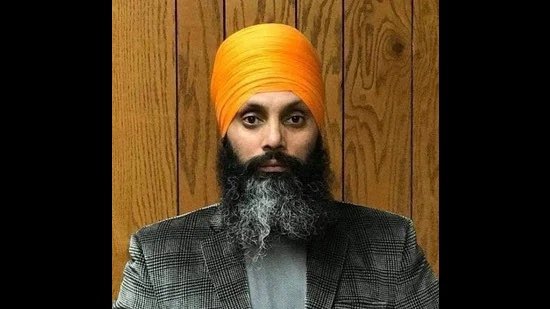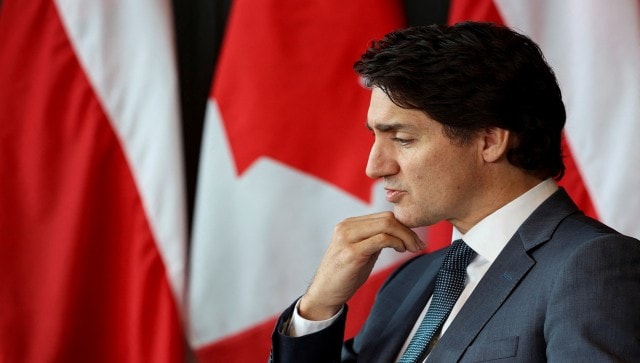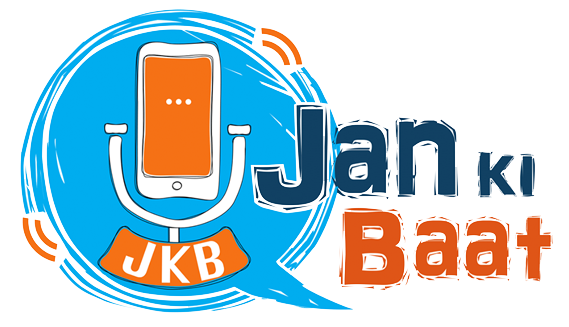JAN KI BAAT Content Head Sagarika Mitra gives you a detailed insight into diplomatic escalation between India & Canada over Justin Trudeau’s backing of a Khalistani terrorist
This morning we woke up to a news that sent shockwaves through diplomatic circles, Canada expelled a high-ranking Indian diplomat after Canadian Prime Minister Justin Trudeau’s stunning accusation. He accused Indian agents of being involved in the ‘assassination’ of Khalistani Hardeep Singh Nijjar
Trudeau’s allegations have not only strained relations between the two countries further but have also raised concerns about his approach to foreign diplomacy. Here’s all you need to know about the case, the man at the centre of the flashpoint, the politics around it and some historical facts
Trudeau’s Accusations and how India hit back
Canadian PM Justin Trudeau claimed that Canadian intelligence had uncovered a ‘credible link’ between the death of Hardeep Singh Nijjar and the Indian state. Trudeau claimed that he also raised this during a recent meeting with Indian Prime Minister Narendra Modi at the G20 summit. He emphasized that any foreign government’s involvement in the killing of a ‘Canadian citizen’ on Canadian soil constituted an unacceptable violation of Canada’s sovereignty.

In response to Trudeau’s allegations, India issued a strongly worded rebuttal, firmly denying any involvement in the matter. The Ministry of External Affairs (MEA) categorically rejected the Canadian PM’s claims. In its statement it said – ‘Such unsubstantiated allegations seek to shift the focus from Khalistani terrorists and extremists, who have been provided shelter in Canada and continue to threaten India’s sovereignty and territorial integrity. The inaction of the Canadian Government on this matter has been a long-standing and continuing concern’
India also summoned Canadian High Commissioner Cameron MacKay and informed about the decision of the Government of India to expel a senior Canadian diplomat based in India. The concerned diplomat has been asked to leave India within the next five days. MEA in its statement said ‘the decision reflects Government of India’s growing concern at the interference of Canadian diplomats in our internal matters and their involvement in anti-India activities’
Who is Hardeep Singh Nijjar, for whom Justin Trudeau has unleashed a diplomatic war against India?
In the centre of this escalating diplomatic turmoil between India and Canada stands Hardeep Singh Nijjar. He is a name that has garnered international attention, sparking a flurry of questions and concerns about his identity, activities, and the circumstances that allowed him to become a focal point in the strained relations between these two nations.
A Fugitive with Terror Ties:-
Hardeep Singh Nijjar’s journey into notoriety began with allegations of his involvement in extremist activities. He held the ominous title of Chief of the Khalistan Tiger Force, a group associated with the Khalistani movement. India accused Nijjar of having ties to terrorism and of orchestrating training camps for Khalistani terrorists in the Canadian province of British Columbia.
Interpol’s Notice and his Shadowy Past:
The international community’s concerns about Nijjar reached a global scale when the Interpol issued a notice for his arrest. This move was indicative of the gravity of the allegations against him and the international interest in bringing him to justice.
A Deceptive Entry into Canada and Rejected Refugee Status:
Nijjar’s arrival in Canada was marked by deception. He entered the country using a false passport and subsequently applied for refugee status. However, his refugee application was met with rejection. The circumstances surrounding his immigration into Canada raised perplexing questions about how someone with such a controversial background managed to enter the country and avoid scrutiny.
A Marriage of Convenience:
Just 11 days after his initial refugee application was rejected, Nijjar embarked on a seemingly desperate path to secure his immigration status. He married a woman, presumably in an attempt to find sponsorship for immigration purposes. However, this endeavor also culminated in rejection.
Identity as a Canadian Citizen:
Perhaps the most confounding aspect of Nijjar’s story is his self-identification as a Canadian citizen. This claim to citizenship raises profound questions about the rigor of background checks and immigration processes in Canada. Today Canadian Prime Minister Justin Trudeau called him a ‘Canadian Citizen’, facts say otherwise
Involvement in Targeted Killings and a Violent End:
Hardeep Singh Nijjar has been accused of targeted killings in India. His journey reached a violent climax when unidentified assailants shot him dead in June. His killing added another layer of intrigue to his story and further heightened the complexities surrounding his life and activities.
Is this Justin Trudeau’s ‘REVENGE’ after being snubbed in India during the G-20 summit?
Canadian newspaper Toronto Sun featured a front-page headline titled ‘This Way Out,’ capturing Prime Minister Narendra Modi gesturing for Trudeau to move ahead during their visit to Raj Ghat. This symbolic message was widely interpreted as a not-so-subtle suggestion for Trudeau to hasten his departure.
Cornered and Ignored at G-20?
Adding to Trudeau’s woes were the conspicuous absences from key events. Notably, he skipped G-20 leaders’ dinner without providing reasons, leaving observers puzzled about his priorities during the visit. Furthermore, Justin Trudeau also missed the launch of the Global Biofuels Alliance, a partnership aimed at advancing cleaner and greener fuels, citing alternative commitments.
Trudeau’s Travel Troubles:
Compounding the challenges during the visit, Trudeau’s official aircraft faced technical difficulties, preventing its departure from India. This incident left the Canadian delegation stranded in Delhi for a full day, highlighting the fraught nature of the trip.
Massive criticism & ridicule in International Media:
Trudeau’s visit to India received global attention and criticism, with foreign news agencies like Reuters and Bloomberg reporting on his perceived humiliation and tensions during the visit. Pierre Poilievre, Canada’s opposition leader and a contender for the Prime Minister’s post, posted the Toronto Sun front page on social media, stating that no one likes to see a Canadian prime minister repeatedly humiliated and trampled upon by the rest of the world.
PM Modi’s stern message on the Khalistani issue:-
During their pull aside at the G-20 Summit, Prime Minister Modi did not mince words He delivered a scolding and voiced criticism on Canada’s handling of anti-India activities on its soil. PM Modi’s refusal to extend a welcome note to Trudeau, a standard courtesy for visiting leaders, signaled India’s anger over Canada’s inaction.
Justin Trudeau’s Diplomatic Blunders and Khalistani Politics:
Canadian Prime Minister Justin Trudeau’s political career has been marred by a series of diplomatic blunders and a perplexing stance on Khalistani extremism. His recent clash with India over allegations of foreign interference and his support for Khalistani elements invite scrutiny within the context of his disappointing political journey.

The 2018 India Visit: A Cursed ‘Bollywood’ Trip:
In February 2018, Trudeau embarked on an eight-day visit to India with high expectations of grandeur. However, what transpired was a bewildering spectacle that left both Canadians and Indians cringing in embarrassment. Prime Minister Narendra Modi didn’t even meet him for a bilateral during his visit. The trip earned notoriety when it was revealed that a convicted Khalistani terrorist, Jaspal Atwal, had been invited to official events, sparking a global controversy. Trudeau’s visit, meant to foster diplomatic ties, descended into mockery.
Trudeau’s Khalistani Sympathies:-
Trudeau’s enduring defense of Khalistani elements raises questions about his commitment to democratic values. His assertion that these sympathies represent ‘free speech’ fail to address the disturbing reality of open calls for violence against Indian diplomats and attacks on diplomatic missions. Celebrations of violence, such as a tableau commemorating the 1984 assassination of former Indian Prime Minister Indira Gandhi, cannot be justified as free speech.
Inconsistent Approach to Free Speech:
Trudeau’s reputation as a free-speech champion is questionable, as evidenced by his harsh response to the Freedom Convoy of Truckers in February 2022. Instead of respecting peaceful protests, he deployed riot police, condemned the protesters, and froze their bank accounts. This inconsistency undermines his claims of defending free speech.
Like father? Like son?
Trudeau’s Khalistani politics appear to echo those of his father, Pierre Trudeau, who served as Canada’s Prime Minister twice. Pierre Trudeau’s refusal to extradite Talwinder Parmar, the head of the Khalistani terror organization Babbar Khalsa, contributed to the Air India Flight 182 bombing in 1985, which claimed 329 lives. The Trudeau dynasty’s history of dismissing India’s concerns about Khalistani terrorism has unsettling implications for Canada’s foreign policy.
In conclusion, Justin Trudeau’s diplomatic blunders and his politics of appeasement toward Khalistani elements have cast a shadow over his political career. His inconsistent approach to free speech and his disregard for India’s concerns about extremism within Canadian borders are issues that demand careful consideration. Trudeau government’s stance on Khalistani extremism remains a contentious and potentially perilous aspect of its foreign policy.
